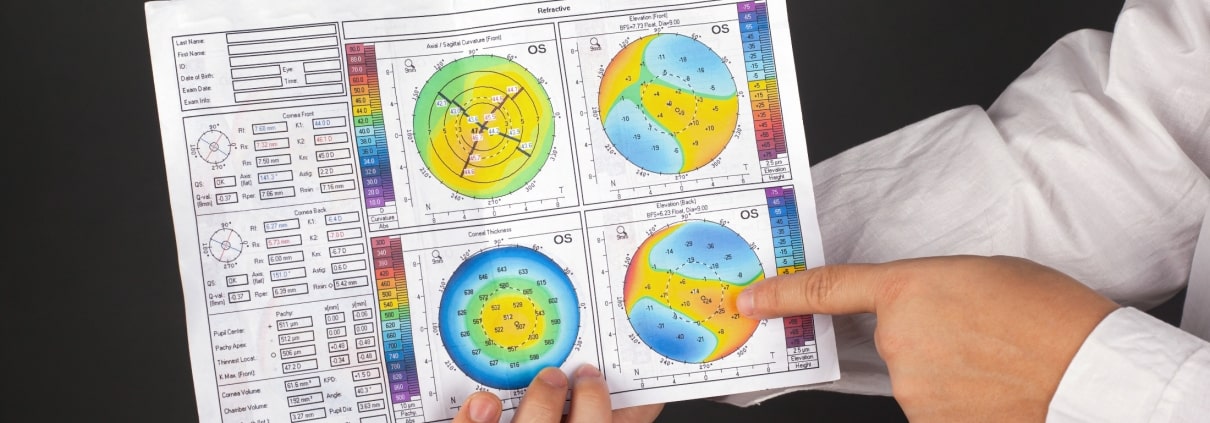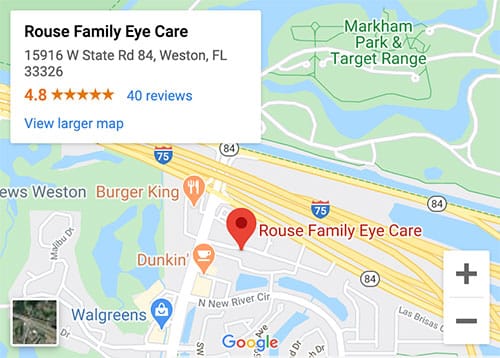Signs and Symptoms of Keratoconus (And What To Do About It)
Keratoconus happens when the clear, dome-shaped cornea on the front of your eye gradually becomes cone-shaped. The change in shape can affect the way light enters the eye and make it difficult to see. People with keratoconus often complain of other eye-related issues, too.
Our Weston optometry team urges you to learn about the warning signs of keratoconus and discover how we can help you manage this condition. The sooner you seek help, the sooner you can find relief and get appropriate treatment.
6 Signs and Symptoms of Keratoconus
Signs and symptoms of keratoconus typically show up in the late teens or early twenties. One or both eyes can be affected, and symptoms tend to slowly get worse over one or two decades. Six of the most common signs and symptoms include:
- Blurry vision
- Red, itchy, and irritated eyes
- Increased sensitivity to bright lights and glare
- Straight lines that appear wavy and other visual distortions
- Inability to tolerate wearing contact lenses
- The need to frequently update corrective eyewear prescriptions
The scientific community is still learning why keratoconus happens. It could be that certain people have a genetic predisposition that makes their corneal tissues more susceptible to oxidative damage and malformation. UV radiation and excessive eye rubbing may also be possible risk factors for keratoconus.
What to Do If You Experience Keratoconus Symptoms
Because keratoconus can present like other eye conditions, you need to meet with an eye doctor to get a clear diagnosis. Our Weston optometrist staff—Dr. Rouse, Dr. Rouse, and Dr. Clune—can diagnose keratoconus on a comprehensive eye exam. With a confirmed diagnosis, we can initiate a range of individualized treatment services, including:
- Updated prescription eyewear, including eyeglasses or hard-to-fit contact lenses
- Orthokeratology (ortho-k), which uses special contacts worn at night to temporarily re-shape the corneas and improve vision during the day without corrective eyewear
- Prescription medications, including eye drops or pills, to help reduce itching, swelling, and redness
We can also offer lifestyle techniques like cool or warm compresses to ease discomfort at home, as well as pre-and post-operative care for anyone who undergoes corrective surgery to replace their damaged corneas.
Wondering if you have keratoconus? Call Rouse Family Eye Care at 954-384-6200 to schedule an eye exam with us today!





Leave a Reply
Want to join the discussion?Feel free to contribute!